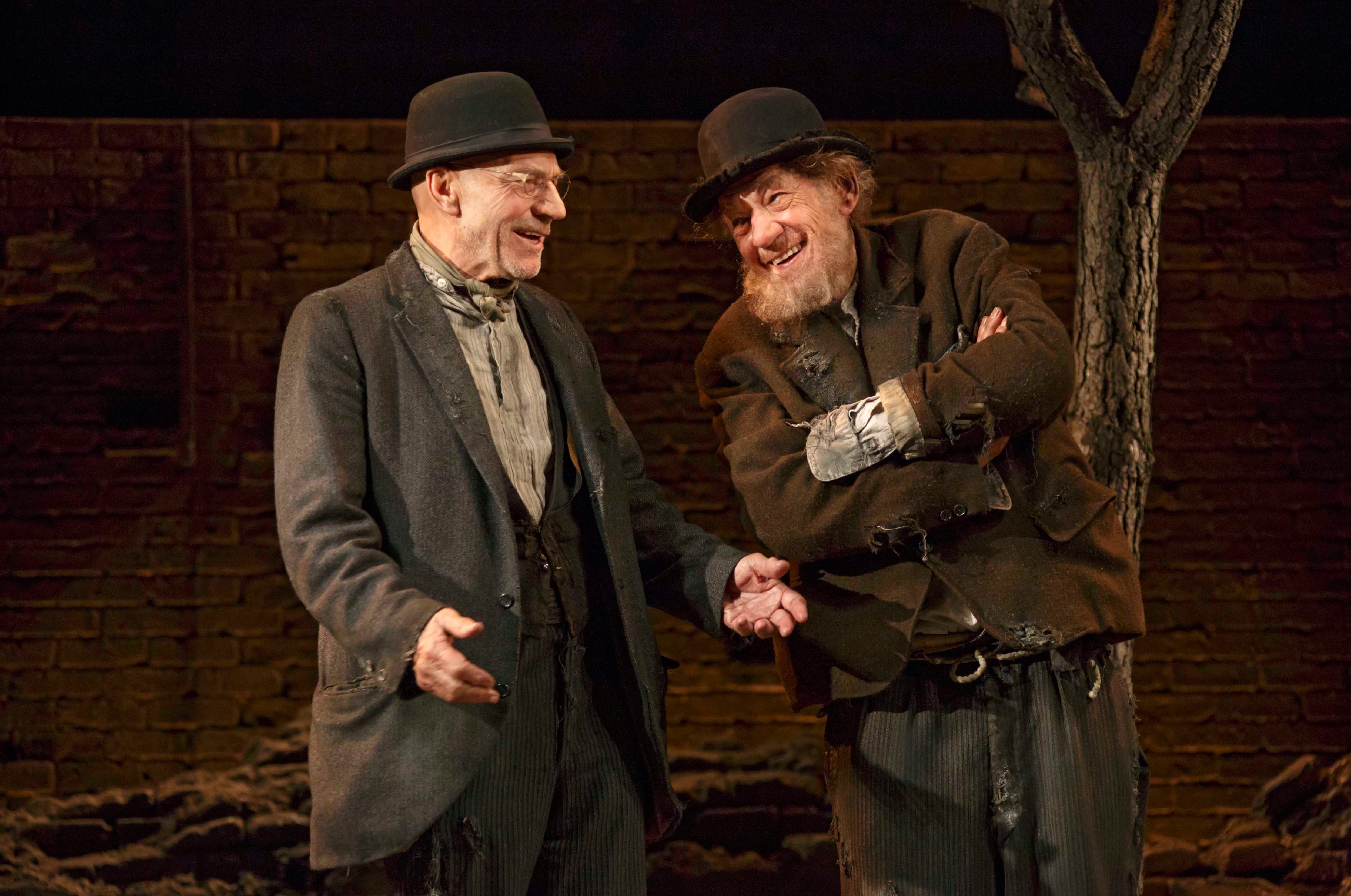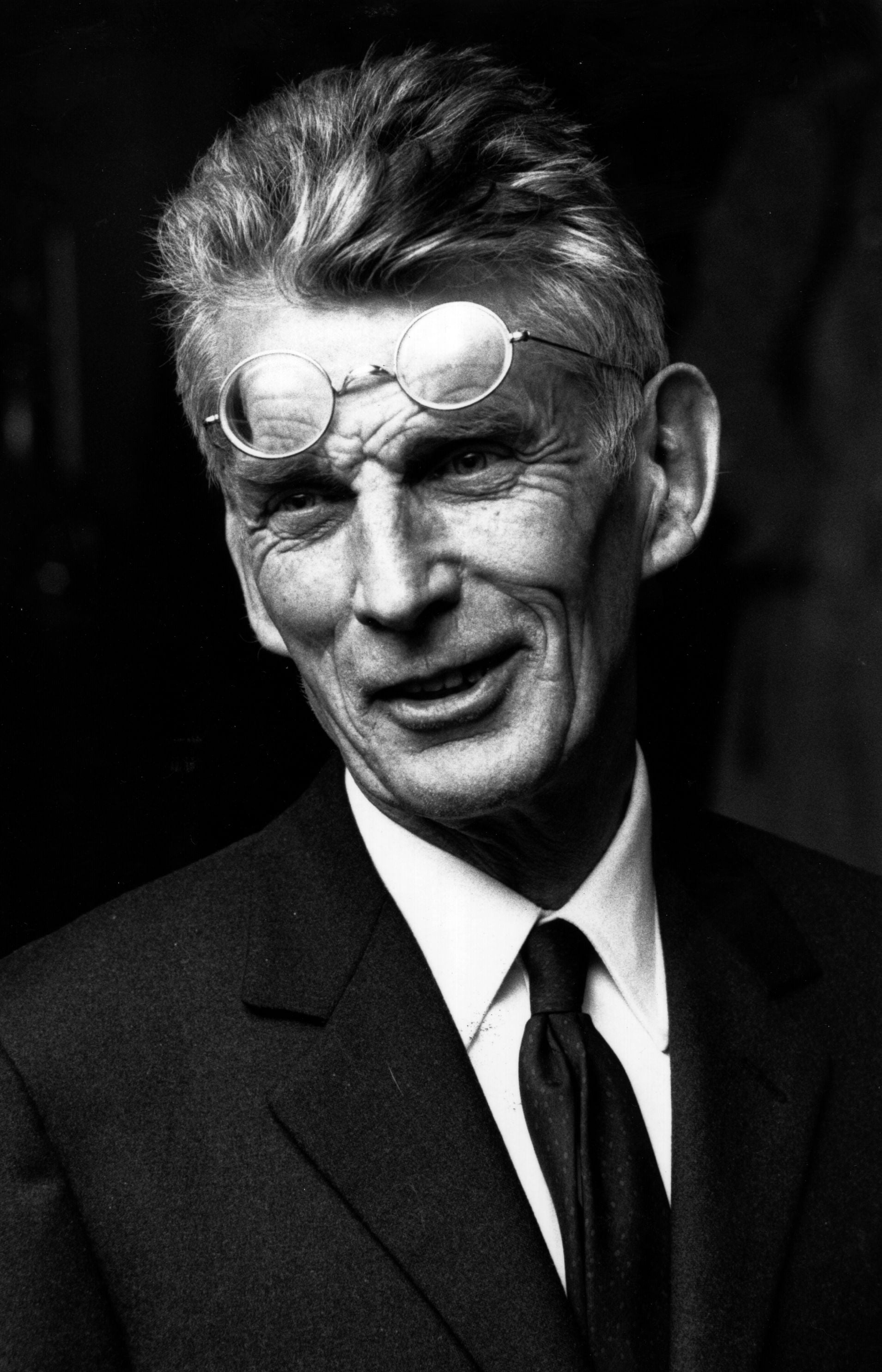Book of a Lifetime: Waiting for Godot by Samuel Beckett
From The Independent archive: Meg Rosoff on ‘Waiting for Godot’ by Samuel Beckett

A couple of tramps, an off-stage potentate with a made-up name who never materialises, a strange slave at the end of a rope spouting nonsense (or is it?). A slave master. A little boy. And that’s it. What happens? Well, nothing of course. They wait. They say “let’s go.” They do not move. I first read Waiting For Godot when I was 15.
Beckett’s black humour and bracing nihilism appealed wonderfully to a suburban teenager in the throes of an existential crisis (the first of many). When Vladimir says, “In an instant all will vanish and we’ll be alone once more, in the midst of nothingness,” he seemed to answer the exact questions my middle-class Judeo-Christian education had failed to address. Life was not about sweating daily in frantic denial of the human condition, collecting objects that would be thrown in a skip upon our demise.
Instead, I realised in a flash of adolescent insight, we must make something out of nothing as best we can, and then return quietly to dust. Strangely, this thought didn’t depress me then, and doesn’t now. Best to face facts and act accordingly. Despite the fact that my first encounter with the play took place 37 years ago, my relationship to it has barely changed. I still love Beckett’s writing, his indifference to a literal time frame, his contempt for description or conventional plot.

Waiting For Godot’s pared-down prose makes Cormac McCarthy feel positively purple, and yet there are moments in the text that still have the power to bring tears to my eyes. “To all mankind they were addressed, those cries for help still ringing in our ears,” says Vladimir. “But at this place, at this moment of time, all mankind is us, whether we like it or not.” Is there a more powerful call for collective human responsibility anywhere in modern literature?
Over nearly four decades, I have only once lost faith in Godot’s anarchic perfection – at the theatre a few years ago, when I left a well-reviewed performance halfway through, frankly bored, and wondering what it was that had enthralled me for so long. After that experience, I resisted attending Sean Mathias’s recent stage version at the Haymarket, certain that my passion for the play had finally gone off the boil. But in the end (thanks to a friend’s extra ticket) I did go – and emerged exultant from a pitch-perfect evening: dark, sad, hilarious, full of hope, hopeless. Everything you could wish for.
On this viewing, lines that I might have skipped over in my youth leapt out and sent me running back to the text once more. I loved Vladimir’s philosophical reply to Estragon’s repeated complaint that “there is nothing to be done.” “What’s the good of losing heart now, that’s what I say. We should have thought of it a million years ago, in the Nineties.” It reads almost like an epitaph for my generation.

Join our commenting forum
Join thought-provoking conversations, follow other Independent readers and see their replies
Comments